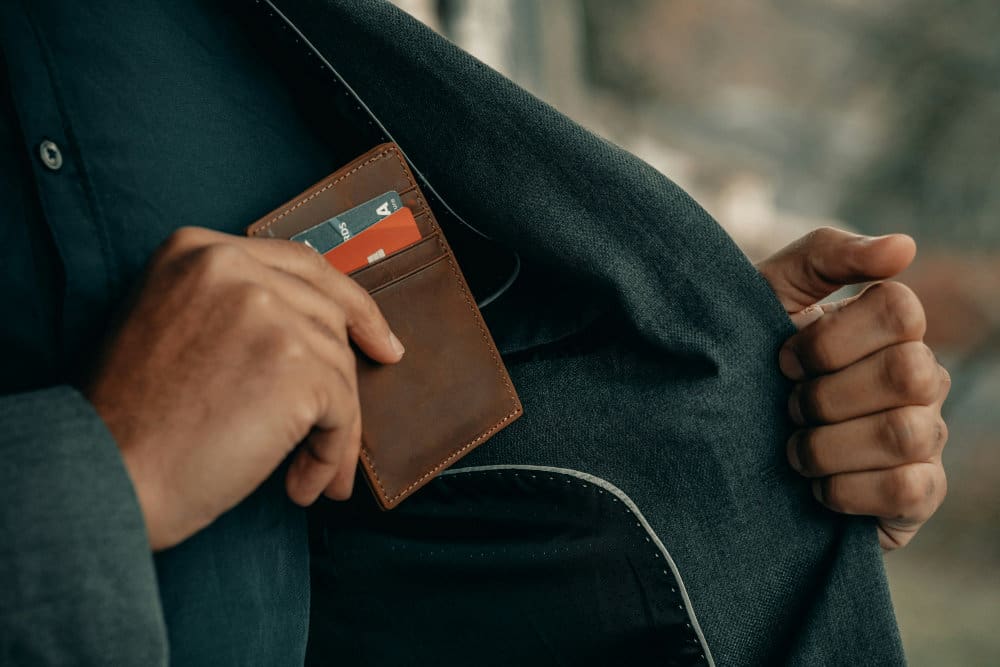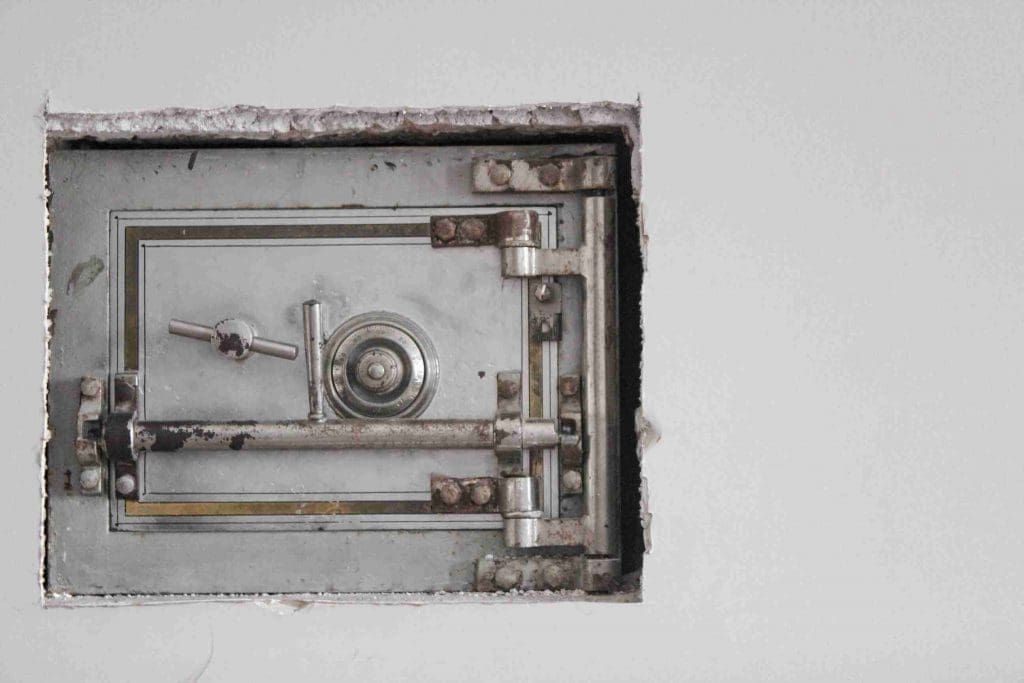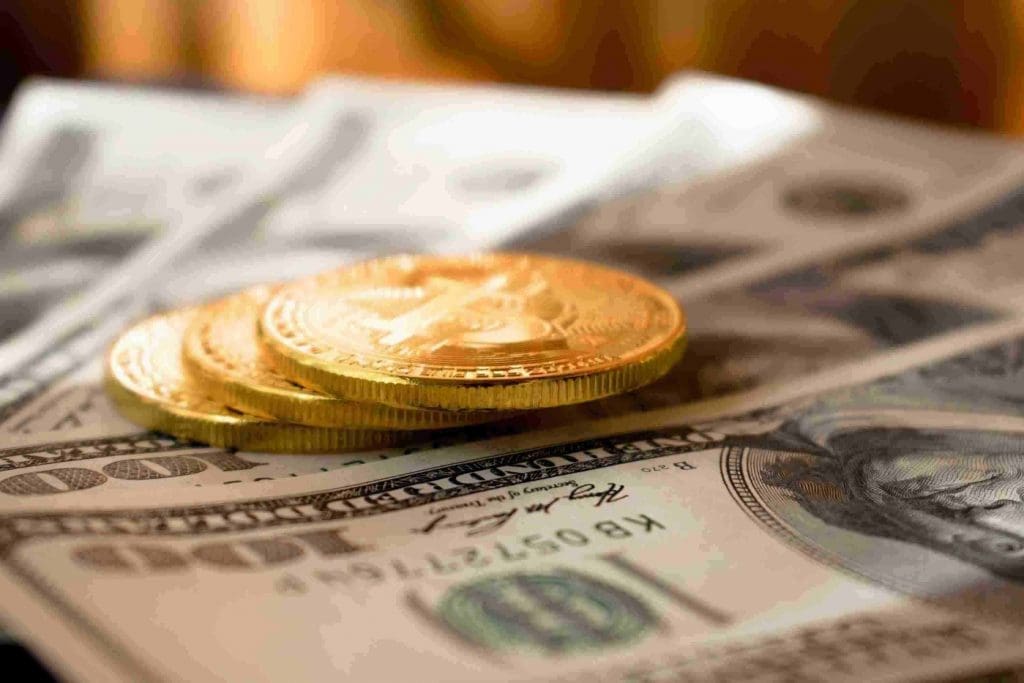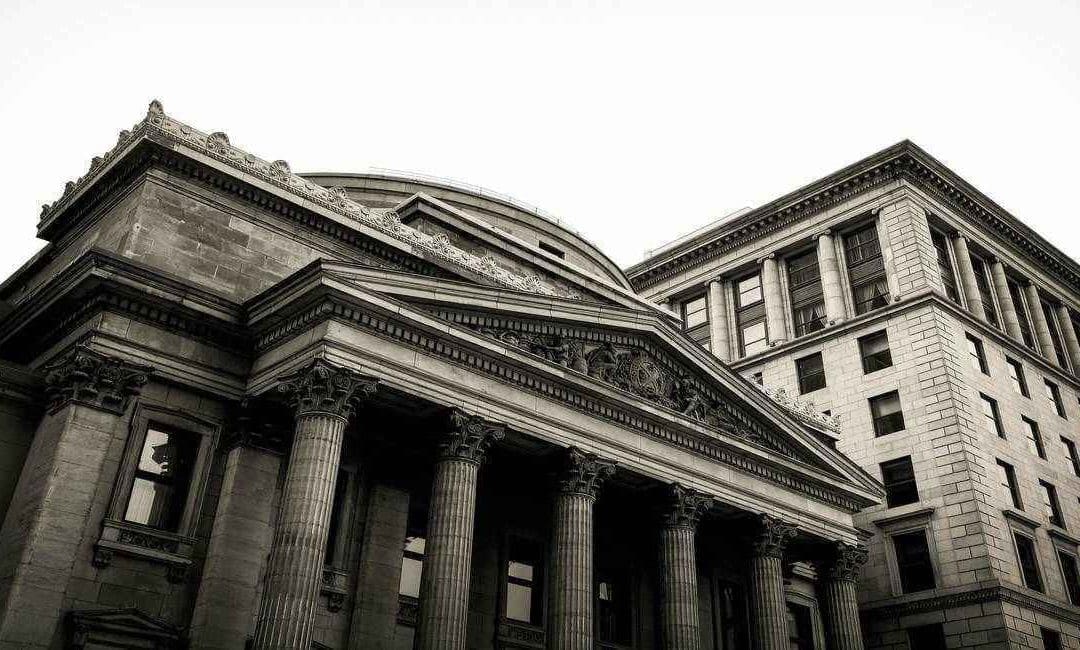Let’s talk about the benefits of offshore banking and why having accounts in foreign jurisdictions is a good idea for anyone, not just high-net-worth individuals, but even those who can meet minimum deposit requirements.
Key Takeaways:
- Offshore banking offers asset protection and geopolitical diversity
- Choose jurisdictions known for economic and political stability
- Foreign accounts protect you against domestic crises
- In some cases better banking fundamentals abroad and avoiding over-leveraged domestic banks
- Currency diversification – prevents overexposure in one currency
- Essential for international needs – ensures access to funds despite domestic restrictions
- Minimal downsides – requires basic documentation while providing significant financial freedom and security
Table of Contents
What is an offshore bank account?
I use the term “offshore” quite liberally. I don’t just mean traditional tax havens like the Cayman Islands or Swiss banks, but generally “abroad”. Opening a bank account in a foreign country such as a European opening a personal account in the US would be considered offshore banking.
No, offshore bank accounts are not just for illegal activities such as money laundering and tax evasion. In fact, it’s increasingly hard to hide money with the Foreign Account Tax Compliance Act (FATCA) and Common Reporting Standard (CRS) now in place. Generally speaking, financial institutions now automatically share your account details and information with your country of residence as part of standard reporting requirements.
Not every country is part of CRS, and there are a few ways around it, but the trend is clear. There will be greater financial transparency on account holders going forward, and even if you’re currently able to hide your funds, you’ll potentially get caught retroactively, seven years from now, for actions taken today with your foreign accounts.
9 reasons why you should open an offshore bank account, now rather than later.
Here are the benefits of offshore banking and the legitimate reasons for setting up financial accounts in different countries and banking outside your domestic accounts.

1. Asset diversification
Let’s say you live in country A, you are employed in country A, and you keep your savings in country A. What happens if things go terribly wrong in country A and economic instability strikes?
You never want to be too exposed. Think of Russian aristocrats in early 1917 who had everything in Russia, and then compare them with their friends who had opened a bank account in Paris with some money just in case. Who do you think fared better after the revolution?
Think of Argentines who had all their money in Argentinian bank accounts before the crises and devaluations, and compare them with those with the foresight to maintain a second bank account right across the border in Uruguay. Who fared better?
The point is that you never know what could happen in your jurisdiction – war, political instability, economic collapse, extreme socialism. Having some money stashed away abroad is a very sensible thing to do.
2. Safer banking services

Safer than the leveraged derivatives your bank speculates on with your deposits
Let’s say you’re French, and you have your money at BNP Paribas, or you’re German with your cash at Deutsche Bank. Do you feel safe using only domestic banks? Well, you shouldn’t. These banks barely pass stress tests, have balance sheets with hidden monsters and are backed by governments (more specifically France) that are not particularly solvent.
Why wouldn’t you move your money to a banking institution abroad with Tier 1 capital ratios of 25% versus 10%? You can find banks that are 2-3 times better capitalized.
Do you really believe that because your bank is in your town you have easier access to it? I challenge you to go to your bank in the UK or the US with your debit card and ask for the equivalent of 15,000 Pounds/USD cash within 24 hours. Good luck.
3. Currency diversification
If you’re South African, you’re already pretty exposed to the South African Rand (ZAR). Your salary is in ZAR, your house is in ZAR, a lot of your pension fund as well, so why keep all your cash savings in ZAR as well? It would actually be completely irrational, from a risk management point of view, to do so.
Same goes for Americans with the US Dollar and Europeans with the Euro. Don’t think you’re much better.
Open a bank account abroad, and save your money in different currencies through multi-currency accounts. Get some Euros, USD, Swiss Francs, Singapore Dollars or whatever you want, but be diversified.
Don’t depend on a single central bank.
4. Asset protection
It’s a bit harder to sue you and get your money abroad. Let’s say you have issues at home, whether business activities related or an angry (soon to be ex) spouse. A court order comes through and freezes all your accounts. Guess what, you’re screwed – good luck with that.
If you had a foreign bank account, you’d still be able to access it. It takes many additional procedures and time to get someone’s foreign accounts frozen.
Asset protection doesn’t just apply to lawsuits and angry ex’s., but increasingly for political reasons as well. We saw what happened to the truckers in Canada during the 2022 protests, as well as an increasing number of political activists getting “de-banked.” For now you’re fine, but maybe you could be next?
5. Access to education and healthcare

Sometimes, countries go through hard times and capital controls get put in place, which means getting money out of the country becomes extremely complicated, if not nearly impossible, for normal people. And even if you can, you need to run through slow, nightmarish bureaucratic measures to extract your money through international transfers.
Countless countries have had such situations, from Argentina, Zimbabwe, and Nigeria recently, to countries like France, Italy, etc. in the 1970s and 1980s. Don’t think you’re immune to it. Shocks happen. and when they do, you won’t find out until Sunday night, with measures effective immediately.
Perhaps your children attend university abroad, and now you can’t transfer money out to pay tuition. Do you think the university in the UK will care about your capital control issues? It won’t, and your child will be given a semester off until you sort out your finances.
Or maybe you need a special type of surgery that only doctors in financial hubs like Switzerland or Malaysia can perform. Guess what, your central bank doesn’t care, or won’t necessarily care in time.
Don’t let capital controls, driven by incompetent or thieving politicians, get in the way of your life plans and financial commitments.
6. Higher interest rates on your savings
In some banks abroad, you can get much higher rates on your deposits. You can have accounts denominated in emerging market currencies offering double digit returns (with the risk that comes along) or even in your own currency through competitive interest rates.
7. Flexibility is one of many reasons to open an offshore bank account
Let’s say capital controls are enacted, and you have some income coming from abroad. Well, you can always send that income to your offshore bank account, as opposed to sending it back into the financial hellhole that your country has become – perfect for digital nomads and international business owners.
Do you want to buy something abroad? Well, you can do it without having to fill out paperwork or pay a tax on foreign transactions just like Argentina instituted in January 2020. If using an Argentinian credit card abroad for instance, you must pay a tax of 30% on all purchases, which gets collected directly by the credit card company.
Lovely, right?
8. Better customer service
I have bank accounts with private bankers who know me personally, with reliable and easy-to-use online banking apps through which I can transfer money anywhere in the world, and when due diligence and compliance have questions I just send them the documents per email and reply to their questions. Mauritius sticks out as one of those places with quality banking at affordable prices. It’s even possible to do remote account opening there.
Learn more about the pros and cons of Opening a Bank Account in Mauritius as a Non-Resident.
What about your bank? If you want to send larger amounts of money abroad for whatever reason, how quick are they? How helpful are they? You’ll probably find out at an inopportune time that they are neither helpful nor responsive.
9. Why is now the best time to open an offshore bank account?
Because, why not?
Seriously, why not? There are very few downsides, and a lot of upside. Disproportionately positive lifestyle and freedom returns. Why would you not do it?
A few careful considerations you should be aware of with offshore banking:
- Standard due diligence requirements (copy of your passport, proof of address)
- Anti-money laundering / source of funds verification
- A bit more admin (e-banking password to remember, etc.)
- Some extra banking fees
- Consider tax obligations and reporting requirements in account holder’s home country
If all you need to do is remember a login & password, pay a few dozen or hundred (depending on the bank) USD in fees a year, and add this bank account number to your tax forms every year. Why would you not do it for all the benefits, freedom, and peace of mind you can get?
Many offshore banks offer excellent services for both personal and business bank accounts. The key is making informed decisions about where to bank based on factors like economic and political stability, privacy laws, and potential tax benefits.
Having said this, many offshore banks also offer terrible services, have bad correspondent banking, and are very expensive. Choosing the right offshore bank is absolutely crucial.
What are the best offshore bank accounts?
There is no such thing as “the best offshore bank accounts”. The right jurisdiction and bank really depend on your personal set of circumstances
Important considerations include:
- How much money do you want to deposit?
- Where do you live?
- What is your citizenship?
- What do you want to do with that money? Do you want to just save the money, just keep it?
- Is it a transactional bank account where you’ll actually use it on a regular basis, use the credit card, or the debit card?
- Do you want to buy financial products that they’re selling?
- Do you want to trade stocks, because some banks offer trading platforms?
- Where are you going to be sending money to and receiving from?
- Are you involved in crypto?
- If you’re American, your options are typically very limited as most banks in the world do not want to deal with the compliance risk of having US clients.
We can help you with an offshore bank account strategy
At The Wandering Investor, we have opened dozens of bank accounts all over the world, and we have helped dozens of clients optimize their offshore banking. We offer personalized consulting calls for individuals who wish to open offshore bank accounts. During the call we discuss the most appropriate international banking solutions for you as an individual.
We help you with:
- Selecting the right bank for your unique situation, and in some cases we can help you open bank accounts directly.
- Save you weeks of research, failed applications and fees.
- This is a highly focused strategy call that should take less than 30 minutes.
We charge $250 for this offshore banking strategy call.
We help individuals with North American, European, South African, Singaporean, South Korean, Japanese, Australian and Kiwi passports. This service is only for personal banking, not for business banking.
FAQ
Which country is easiest to open an offshore account?
Generally speaking, “easy” is not what you necessarily want to be going for, especially if you are opening remotely. “Easy” means loose standards, which may lead to issues down the line.
Are offshore bank accounts traceable?
Yes, don’t try to hide money using offshore bank accounts in your own name. The information will get shares with your country of tax residency (CRS) or even with the US if you are American (FATCA)
What is the safest country to have a bank account?
Some of the safest jurisdictions are Singapore, Switzerland, Liechtenstein, and counterintuitively the US (specifically for non Americans)
Can the government seize offshore accounts?
It’s very hard. In your own country it is very easy for the government to seize your assets in a bank account. Overseas they have to go through the local courts. It adds a lot of bureaucracy, time and expenses. This means that in the vast majority of cases governments don’t bother as they know you would typically have time to shift your money elsewhere anyways.
What is the difference between offshore company and offshore bank account?
An offshore company is a structure to conduct business, but it requires a bank account to operate. Yes you can open an offshore company to open an offshore bank account, but this typically comes with much more compliance and tax issues.
Is there more tax burden with offshore bank accounts?
Typically you have to declare your offshore bank accounts to your country of tax residency, or if you are American to the IRS (FBAR)
Are there tax advantages with offshore banking?
In most cases no. Again, the main purpose of offshore banking is access to more suitable services, diversification, asset protection, and having plan B banking in case of capital controls in your country.
Other articles on International Banking
- Pros and cons of international banking in Mauritius
- Pros and cons of international banking in Panama
- Pros and cons of international banking in Georgia
- 4 things you should know before opening an International Bank Account
Subscribe to the PRIVATE LIST below to not miss out on future investment posts, and follow me on Instagram, X, LinkedIn, Telegram, Youtube, Facebook, and Rumble.
My favourite brokerage to invest in international stocks is IB. To find out more about this low-fee option with access to plenty of markets, click here.
If you want to discuss your internationalization and diversification plans, book a consulting session or send me an email.



An important reason for me is that I plan to leave the U.K. in a couple years and most banks here won’t allow you to have an account if you are not resident – it’s the same in most G7 countries. I am using a bank in the Isle of Man where I hold a lot of cash in different currencies and investments – no matter where I move to, I can still keep this account and relationship.